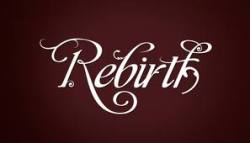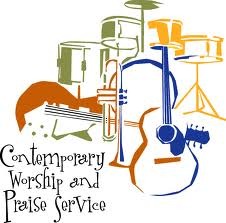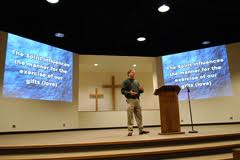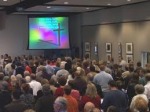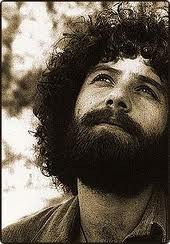A Possible New Way Of Looking At Rebirthing, the Evangelistic Spirit
 In a previous blog, we examined the difference between “reproduction”, making all the things the same, and “rebirth”, a choice to make “all things new” (II Cor. 5:17). It is a known fact that the Church preaches about “rebirth,” for “if anyone is in Christ, he is a new creation; the old has gone, the new has come,” yet as an institution it is extremely slow at embracing change or newness. Tradition trumps newness. Jesus challenged the Jewish traditions of his day who rejected is “newness,” the fulfillment of all their messianic prophecies. Paul too challenged his Jewish heritage and traditions visiting Jewish houses of worship before being rejected causing him to reach out to the gentiles. If Jesus faced tradition in his time as well as Paul’s, why would we think that we would not have to do the same? In the kingdom of God, renewal, rebirth, and revival always challenge the “traditions of men”, as the Bible calls it.
In a previous blog, we examined the difference between “reproduction”, making all the things the same, and “rebirth”, a choice to make “all things new” (II Cor. 5:17). It is a known fact that the Church preaches about “rebirth,” for “if anyone is in Christ, he is a new creation; the old has gone, the new has come,” yet as an institution it is extremely slow at embracing change or newness. Tradition trumps newness. Jesus challenged the Jewish traditions of his day who rejected is “newness,” the fulfillment of all their messianic prophecies. Paul too challenged his Jewish heritage and traditions visiting Jewish houses of worship before being rejected causing him to reach out to the gentiles. If Jesus faced tradition in his time as well as Paul’s, why would we think that we would not have to do the same? In the kingdom of God, renewal, rebirth, and revival always challenge the “traditions of men”, as the Bible calls it.
So in this blog I would like to challenge some of our current Church “traditions” by brainstorming possible “rebirths”, renewals, rethinking of how we do things as a Church, renew mindset that have been established as to the way we think of evangelism.
 Rebirthing: A Call To The Lost: How are we to reach the lost today? We, the Church, have done it in the past through Evangelistic Crusade, by handing out gospel tracts, by knocking on doors, by using a bullhorn on a street corner, by sharing “The Four Spiritual Laws.” Many methods have been tried, and all the above methods have tasted success, but is that the way to go because they have become “traditional” methods of evangelism? I have shared in previous blogs about some rather creative evangelistic methods that have been done, but is that what the Lord wants at this time at this place in history?
Rebirthing: A Call To The Lost: How are we to reach the lost today? We, the Church, have done it in the past through Evangelistic Crusade, by handing out gospel tracts, by knocking on doors, by using a bullhorn on a street corner, by sharing “The Four Spiritual Laws.” Many methods have been tried, and all the above methods have tasted success, but is that the way to go because they have become “traditional” methods of evangelism? I have shared in previous blogs about some rather creative evangelistic methods that have been done, but is that what the Lord wants at this time at this place in history?
I contend that we, the Church, need to begin to listen to, and more importantly, be obedient to what the Holy Spirit tells us to do about evangelism. Can the Holy Spirit stir up the teacher of the Logos Word, the Bible, to find scripture that would address the sin, the darkness, the loneliness, the hurting and the pain that those who do not know Jesus face, so there will be a hunger for renewal, for a rebirth based on the scriptures? Ofcourse!
Can the Holy Spirit move the prophetic spirit to bring life to those scriptures so that the written Logos Word can become the Rhema living Word in those who chose to accept, follow, and be obedient to Jesus? Ofcourse!
Can the Holy Spirit reveal the proper climate, atmosphere, and conditions needed to care, nurture, and develop those who make Jesus their choice in their spiritual journey toward maturity in the fullness of Jesus Christ in their lives? Ofcourse!
Can the Holy Spirit reveal the “big picture” of how to pull this all together to move the kingdom of God forward, for not only is the kingdom of God at hand, but is now available to God’s Church to move forward. Are the spiritual hands of God ready to be at work in this evangelistic endeavor? Ofcourse!
Now, with all this in place, can the evangelist offer “new birth” to anyone who chooses Jesus because the Church is behind them, beside them, a part of them in unity, for the five fold’s purpose is to also bring unity in the body of Christ, (Eph. 4:12)? Can the evangelist be free in the blessing of the entire Church to offer “rebirth”, “renewal”, “revival”, and “revelation” by offering anyone willing to accept “newness”, for accepting Jesus brings an end to the old, and makes all things “new”, a “renewal”, a “rebirth”, what a revelation? Ofcourse!
So maybe we should rethink how we, the Church, does evangelism in reaching the lost!
 Rebirthing: A Call To Those Found: I love sunrises, the rebirth of a new day, every day. The sunrise brings new birth to God’s creation everyday. With the reduction of the time of the sunlight, creation slowly dies, thus producing seasons. The shortness of days, winter brings death, but as the scriptures reveals the mysteries of God, without death we cannot have life, thus the death and resurrection of Jesus Christ. The days increase with spring bringing life, eventually the longer days of summer produces fruit for harvest when the daylight again begins to diminish. So is the yearly cycle, the life cycle of all created, all living, especially spiritually!
Rebirthing: A Call To Those Found: I love sunrises, the rebirth of a new day, every day. The sunrise brings new birth to God’s creation everyday. With the reduction of the time of the sunlight, creation slowly dies, thus producing seasons. The shortness of days, winter brings death, but as the scriptures reveals the mysteries of God, without death we cannot have life, thus the death and resurrection of Jesus Christ. The days increase with spring bringing life, eventually the longer days of summer produces fruit for harvest when the daylight again begins to diminish. So is the yearly cycle, the life cycle of all created, all living, especially spiritually!
Can the Church also go through these seasons as its “revelation” of “the Son” increases or decreases? Is there seasons of “Son”-light that effects the Church? The Dark Ages supports this through history as what decreased “Son”-light in the revelation of Jesus can do. Is the Church in a season of “revelation” of Jesus Christ today, so it can “mature, attaining to the whole measure of the fullness of Christ,” (Eph. 4:13) in its preparation for the Lord’s return? Do we, the Church, need a “rebirth”, a “renewal”, a “revival”, a new “revelation” of Jesus Christ? Ofcourse! So the evangelistic spirit of “rebirth”, “renewal”, “revival” and “revelation” is needed more today than any other time in Church history. Believers must radiate the “whole measure of the fullness of Christ” to appear Christ-like as the Holy Spirit reveals Jesus to each believer in their own personal life. The church to must radiate this same appearance in preparation for the Groom returning for His Bride in His likeness.
So we need the Holy Spirit to guide us individually and to guide us corporately as the Church into renewing how we approach the evangelistic spirit in reaching the lost with the message of “rebirth” as well as guiding the Church into renewing our revelation of Jesus Christ individually through maturing in the likeness of Jesus and corporately brining unity in all the Church does, even in its evangelistic thrusts and endeavors.
